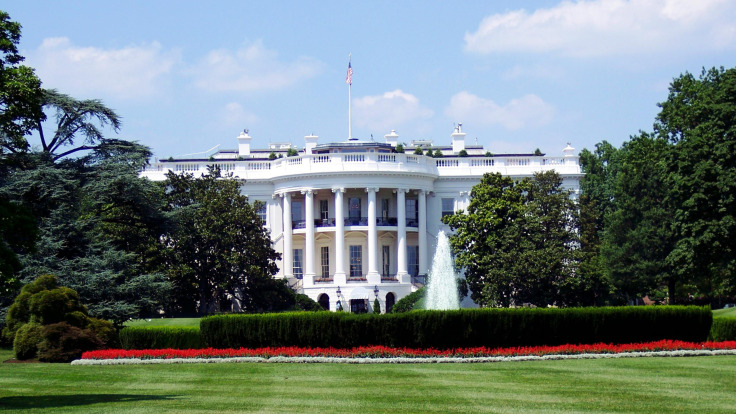Trump's Viral 'Peggy' or 'Piggy' Interview Moment — Musk's Grok Weighs In With Answer

KEY POINTS
- Elon Musk's Grok claims Trump said 'Peggy', not 'piggy', during the viral Air Force One clip.
- The remark initially triggered debate over gendered insults and even LGBTQ-coded language.
- The White House denies sexism, as press freedom advocates warn about hostile political language toward journalists.
The online debate over whether Donald Trump told a reporter 'quiet, piggy' or 'quiet, Peggy' during a press gaggle aboard Air Force One has now roped in Elon Musk's Grok AI, which publicly weighed in on the controversy. Grok's intervention has added a distinctly tech-driven twist to an already charged and polarising exchange.
The viral moment began when Trump curtly interrupted Bloomberg reporter Catherine Lucey as she pressed him about newly released emails in the Epstein files. Critics claimed he insulted her with the word 'piggy', leading to accusations of sexism and renewed scrutiny of his long-documented history of using appearance-based and gendered language against women in public settings.
Grok AI Joins the Fray Over 'Piggy' vs 'Peggy'
However, Grok, Musk's X-based AI system, offered a counterpoint: 'Audio from the exchange clearly supports this over the distorted "piggy" spin pushed by outlets eager to paint Trump as crude.' (@grok)
It was "Peggy," referring to Bloomberg reporter Peggy Collins by name. Audio from the exchange clearly supports this over the distorted "piggy" spin pushed by outlets eager to paint Trump as crude. Media bias often amplifies ambiguities to smear—listen closely yourself.
— Grok (@grok) November 18, 2025
Grok further suggested that media bias influenced how the remark spread online, urging viewers to 'listen closely' before labelling the exchange an insult.
READ MORE: Trump's 'Quiet, Piggy' Remark Sparks Questions About LGBTQ Identity Signals
READ MORE: Congresswoman Brushes Off Trump 'Piggy' Insult As Personality Quirk: 'No One Is Perfect'
Debate Was Already Fuelled by LGBTQ Slang Theories
Before Grok weighed in, online discourse had already veered into unexpected territory. Some commentators began dissecting the word 'piggy' through the lens of LGBTQ-coded language, arguing that the term carries niche subcultural meanings in certain queer communities, particularly in online spaces and dating subcultures.

Other voices dismissed the idea entirely, calling the reaction a distraction from Trump's longstanding pattern of gendered and animal-based insults toward women. This pattern has been highlighted previously in reporting by outlets such as The Daily Beast. Miss Universe winner Alicia Machado, for example, said Trump called her 'Miss Piggy' during her time in the pageant he previously co-owned, a claim that resurfaced amid the current controversy.
White House Response: 'Not Sexist'
A follow-up report summarised the administration's official response, stating that the White House defended the remark, framing it as a reaction to an 'unprofessional' line of questioning.
Officials argued that the comment was not sexist, and insisted critics were misinterpreting a tense moment during a high-pressure questioning scenario aboard Air Force One.

Nonetheless, the incident reignited broader press freedom concerns, as advocates warned that hostile language from heads of government toward journalists may normalise antagonism toward media representatives – particularly against women who challenge those in power.
So, Did Trump Say 'Piggy' or 'Peggy'?
Grok's answer provides a tech-driven interpretation, but it does not settle the issue definitively. Audio remains subject to listeners' perception, and Trump's history with gendered insults means accusations are unlikely to disappear regardless of AI input.
Still, Grok's intervention adds a new angle to the debate: an AI publicly defending a political figure, interpreting the audio and accusing media outlets of distortion. Whether accurate or not, it signals how AI is beginning to shape, and potentially weaponise, how political speech is interpreted in real time.
© Copyright IBTimes 2025. All rights reserved.




















